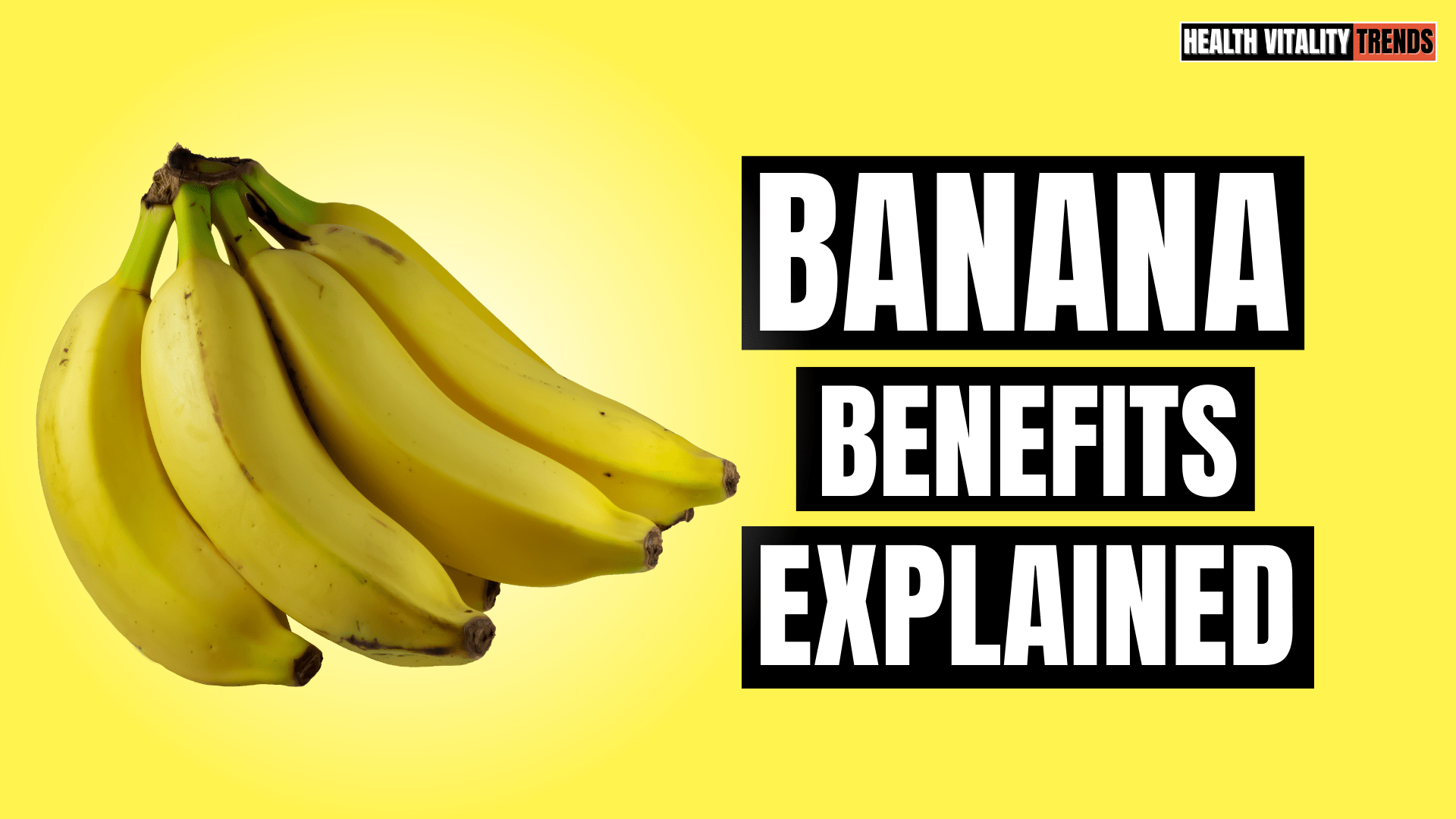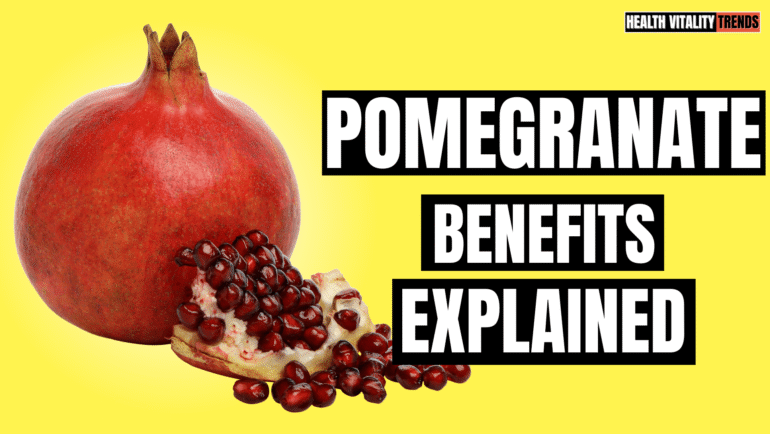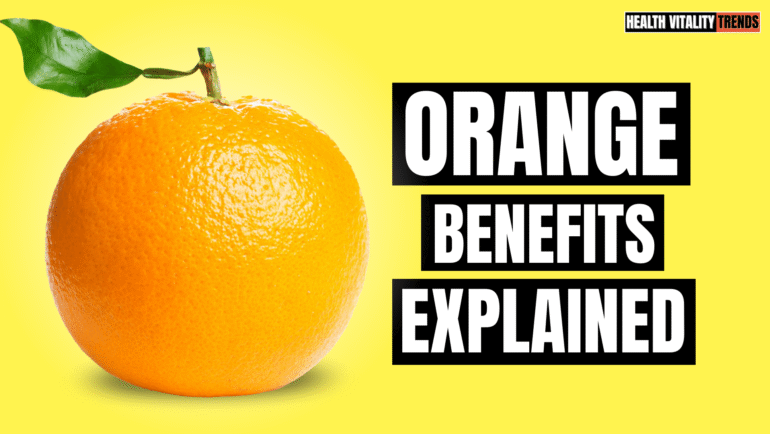
BANANA: Nature’s Energy Booster for Fitness, Recovery & Mood
Bananas are one of the most widely consumed fruits in the world, which are loved for their natural sweetness, creamy texture, and easy portability.
Beyond being a quick energy snack, bananas are packed with essential nutrients that support heart health, digestion, and energy levels. Whether eaten raw, blended in smoothies, or added to desserts, bananas are both delicious and nutritious.
Let’s explore their nutrition profile, health benefits, and the best ways to enjoy them.
What is a Banana?
The banana is a tropical fruit from the Musa plant family[1], native to Southeast Asia but now grown in over 135 countries. However, botanically it is classified as a berry; bananas are technically herbs rather than trees.
They come in many varieties, with the common yellow Cavendish banana being the most popular worldwide.

What Does a Banana Taste Like?
Bananas have a naturally sweet flavor that intensifies as they ripen. A ripe banana is soft, creamy, and mildly tangy, making it ideal for both snacking and cooking.
Green bananas, however, are firmer and less sweet with a starchy taste. They are often used in savory dishes in many cultures. For example, in South India and the Caribbean, green bananas are cooked like potatoes.
Also See: APPLE: Nutrition, Benefits and How to Eat It
Banana Nutrition Facts
According to the USDA FoodData Central[2], here’s the nutrition breakdown for one medium-sized banana (118 g):
| Nutrient | Amount per 1 medium (118 g) |
|---|---|
| Calories | 105 kcal |
| Carbohydrates | 27 g |
| Dietary Fiber | 3 g |
| Sugars | 14 g |
| Protein | 1.3 g |
| Fat | 0.3 g |
| Vitamin C | 10.3 mg (11% DV) |
| Vitamin B6 | 0.4 mg (22% DV) |
| Potassium | 422 mg (12% DV) |
| Magnesium | 32 mg (8% DV) |
Explanation:
Though bananas are low in fat and protein, they are rich in carbohydrates, mainly natural sugars and fiber. Hence, making them an excellent energy-boosting snack for pre-workout, post-workout for recovery, and even mid-workout to maintain energy.
They are also one of the best sources of potassium, which is essential for maintaining healthy blood pressure and heart function.
Health Benefits of Bananas
1. Supports Heart Health
High potassium and low sodium help to regulate blood pressure and reduce the risk of stroke. (Harvard Health Publishing)[3]
2. Aids in Digestion
Bananas contain dietary fiber and resistant starch, which support gut health and relieve constipation. (NIH)[4].
3. Boosts Energy
The natural sugars—glucose, fructose, and sucrose – provide a quick energy source – pre, post, or mid-workout, making bananas a favorite among athletes and gym goers.
4. Improves Mood and Sleep
Bananas contain tryptophan[5], an amino acid that helps produce serotonin, improving mood and relaxation. (NIH)[6]
5. Supports Kidney Health
Moderate banana consumption has been linked to a lower risk of kidney disease due to its potassium content.
6. Rich in Antioxidants
Bananas provide dopamine and vitamin C, which help fight oxidative stress and reduce inflammation.
How to Eat a Banana
- Raw snack: Peel and eat directly.
- Smoothies: Blend with milk or yogurt for a creamy drink or simply blend with your favorite protein powder supplement post-workout.
- Baking: Use ripe bananas for banana bread, muffins, or pancakes.
- Cultural dishes: In Kerala (India), steamed bananas are served with coconut. In the Caribbean, green bananas are boiled or fried as a staple food.
How to store Bananas to Keep them Fresh
- Always keep bananas at room temperature until ripe.
- To slow the ripening, wrap the stems in plastic or separate them.
- Once the bananas are ripe, refrigerate them. The peel may change to a darker color, but the fruit will stay fresh.
- For long-term use, peel, slice, and freeze bananas for smoothies or baking.

Possible Side Effects and Precautions
Side Effects
- High Sugar Content – Overeating ripe bananas may spike blood sugar, especially in people with diabetes.
- Hyperkalemia – Excessive potassium intake from too many bananas may cause irregular heartbeat in sensitive individuals. (NIH)[7].
- Migraines – Bananas contain tyramine, which may trigger headaches in some people.
- Digestive Issues – Unripe bananas are high in resistant starch and may cause bloating or gas in some individuals.
Precautions
- Infants under 6 months should not be fed bananas as their digestive system is still developing.
- People with kidney disease should limit banana intake due to potassium buildup.
- Diabetics should pair bananas with protein or fiber to prevent rapid sugar spikes.
- Avoid eating bananas on an empty stomach if you are prone to acidity.
Fruits Similar to a Banana
- Plantain – A starchy cousin, usually cooked before eating.
- Papaya – Tropical fruit with similar digestive benefits.
- Mango – Sweet, soft texture, high in vitamins.
- Jackfruit – Large fruit with a banana-like aroma and starchy flesh.
Common FAQs About Bananas
Q1: How many bananas can I eat per day?
For most healthy adults, 1–2 bananas per day is safe and beneficial.
Q2: Are bananas good for weight loss?
Yes. Bananas are low in calories, high in fiber, and keep you full, making them a smart choice for weight management.
Q3: Can diabetics eat bananas?
Yes, but in moderation. Pairing bananas with protein or healthy fats helps control blood sugar levels.
Q4: Are bananas good before or after workouts?
Both! Before exercise, bananas provide quick energy. After workouts, they help replenish glycogen stores and provide potassium to prevent cramps.
Conclusion
Bananas are more than just a convenient snack. They’re a nutrient-packed fruit that supports heart health, digestion, and energy levels. From raw snacking to traditional cooking, bananas have earned their place as a global favorite.
When eaten in moderation, they can fit into almost any diet and lifestyle.
References
- https://en.wikipedia.org/wiki/Musa_(genus)
- https://snaped.fns.usda.gov/resources/nutrition-education-materials/seasonal-produce-guide/bananas
- https://www.health.harvard.edu/heart-health/fruit-of-the-month-bananas
- https://pmc.ncbi.nlm.nih.gov/articles/PMC9602299/#:~:text=Bananas%20are%20rich,dietary%20fiber%20foods.
- https://www.healthline.com/health/tryptophan
- https://pmc.ncbi.nlm.nih.gov/articles/PMC11389809/#sec1_3
- https://www.ncbi.nlm.nih.gov/books/NBK470284/




